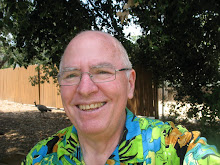In 1981, my first wife went through an extensive process to have bariatric surgery in El Centro California. At the time she weighed 300 pounds and had tried many diets and diet plans. Because of back pain caused by several earlier surgeries, she felt that weight reduction surgery was her only alternative to provide a higher quality of life, fewer pain medications, and the ability to buy nice clothes again. She was not an over-eater, but as students living on a relatively low income; beans, starches and other high calorie foods were our normal choice for meals. We had both gained weight over time.
That summer she had a bariatric procedure that based upon today’s technology, would be quite primitive. A line of staples were placed through her stomach creating the pocket which limited the amount of food being consumed. A small inelastic band was then attached to ensure that the movement of food from the pouch to the rest of the stomach was very slow. Her surgery took approximately 5 hours and her hospital stay was 10 days. In those first few weeks and months she subsisted primarily on ice chips and water. She did begin to lose weight and within a year was down over 100 pounds. She looked great and had fun buying new clothes. She developed the self-confidence to go out into the job market and develop a new career and I had a new wife.
As you can tell, the role of bariatric surgery in weight loss and nutrition has been an essential element of my life. I had received my Ph.D. from the University of California at Davis in 1978 in ecology. My dissertation just happened to be on the digestive physiology of stomachless fishes and I was actually well-versed in the physiological aspects of digestion when no stomach is present. I was quite ready to understand the digestive processes in play after my wife’s surgeries. After 24 years in the post-surgery period, she developed pancreatic cancer and died on Valentine's Day in 2005.
However I was not interested at all in putting myself through what I perceived to be a problematical procedure just to lose weight. So I remained overweight, had high blood pressure, and developed Type 2 diabetes. I controlled the diabetes using several injections of short and long acting insulin daily. In the spring of 2008 my new wife and I watched a program on 60 Minutes on the bariatric surgery done by a doctor on the east coast of the U.S. All of the patients interviewed had lost in excess of 100 pounds and all of them eliminated their Type 2 diabetes . That information was very important. I was interested in the surgery if I could get rid of my diabetes.
My decision to have the surgery was based upon the thirty years I had weighed nearly 300 pounds and my many futile attempts to reduce the weight. I knew that I didn't want to be on insulin for the rest of my life. When I saw how bariatric surgery influenced diabetes and all of the associated health risks with that disease, I realized that this was my chance to do something positive. So even with the serious reservations I had from watching my first wife go through twenty-four years of her life with all the complication, I decided that the health benefits outweighed the risks.
With assistance of my new wife, Elizabeth, I had a vertical gastrectomy (VG) at California Pacific Hospital in San Francisco, California on June 4, 2008. The surgery took slightly over an hour and 20 minutes. It was done using a minimally invasive laparoscopy technique through a 2” incision in my abdomen. I stayed in the hospital overnight and went home the next day at noon. I was on a high protein liquid diet for three weeks. That was a far cry from the surgical procedure my wife went through 27 years earlier. I had no significant pain and was able to do most daily activites relatively soon after surgery.
As I was recovering from the surgery and relearning what and how to eat again, I kept thinking of what I had had said to my wife immediately after her surgery. I had told her that if she could only have eight bites in a meal, I wanted them to be the very best eight bites I could make. I became a much better and more creative cook because of her nutritional limitations. This book is dedicated to her and all of those individuals who have made the difficult decision to have this surgery and to those who are considering it.
At the same time these recipes and culinary ideas are also tasty and can be incorporated into any dietary program. They are designed to be generally high in protein and low in carbohydrates, be aggressively spiced and flavored, and often use interesting ingredients. I want to provide those people who have had bariatric surgery some dietary options that taste and look wonderful and also allow them to enjoy eating without feeling that they are relegated to sitting quietly by while others enjoy their meals.
It is important to keep in mind, that we are what we make of ourselves. So if you can only eat eight bites, make them be eight great bites. Mangiamo!
Wednesday, September 9, 2009
Subscribe to:
Post Comments (Atom)


No comments:
Post a Comment